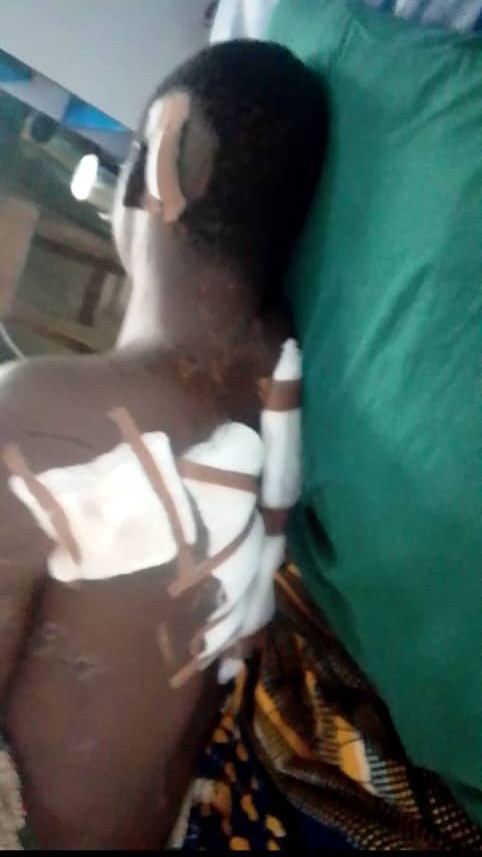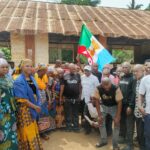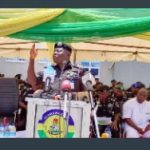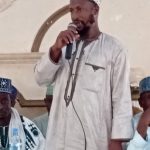From Abubakar Ohida, Okene
There is a haunting stillness that has settled over the community around the Federal College of Education, Okene. It is not the stillness of peace but of grief — and of outrage. At its center is a young man, Muhammad Abdulmumin, a 20-year-old orphan whose only crime was losing his parents too soon, and who is now fighting for his life after a savage beating that has shocked the conscience of Adavi and Okehi LGAs.
According to multiple eyewitness accounts, Muhammad — an apprentice bricklayer — was accused by his uncle, Mallam Kamar Amoto, of stealing an Android phone. No proof was presented, no investigation was carried out, but punishment came swiftly. Mallam Amoto, with the help of a friend, allegedly used shovels to mercilessly beat the boy until he fell unconscious. The said missing phone was later found to be left at home of the assaulter.
It was Mr. Ahmed Rufai, a concerned neighbor, who rushed the barely breathing Muhammad to Dosam Clinic, paying ₦10,000 upfront just to begin treatment. Medical reports by Dr. Nyamida Samuel confirm that Muhammad sustained severe internal bleeding and kidney damage. He has since been referred to the Federal Medical Center, Lokoja — his survival still uncertain.
Community leaders are outraged. Alhaji Hussein Aduvusu, former Chairman of Adavi Joint Community, confirmed the arrest of Mallam Amoto, now in police custody at Okehi Division. “This is not an isolated act,” Aduvusu warned. “We have had several complaints about his violent behavior. This must stop. Justice must be seen to be done.”
Residents have echoed this call, citing a recent incident where Mr. Amoto reportedly tried to stab his own son. Many are demanding that Kogi State Government step in, not just to prosecute the case, but to compel a psychiatric evaluation of the accused.
This case raises uncomfortable questions. How could a community watch this pattern of violence build up without intervention? How many more quiet victims might there be before this tragedy exploded into public view?
The story of Muhammad Abdulmumin is more than an isolated crime it is a mirror of systemic failures: the failure of family, the failure of community watchfulness, and potentially the failure of justice if this case is allowed to fade quietly into the background.
If we do not act decisively, we send a dangerous message that orphans, the most vulnerable among us, can be brutalized without consequence. Justice must not only be done but be seen to be done. The community must heal, but that healing begins with accountability.
Kogi State authorities have an opportunity and a moral obligation to ensure that this case does not disappear under the weight of bureaucracy and neglect. Muhammad’s battered body is crying out for justice, and so should we.







